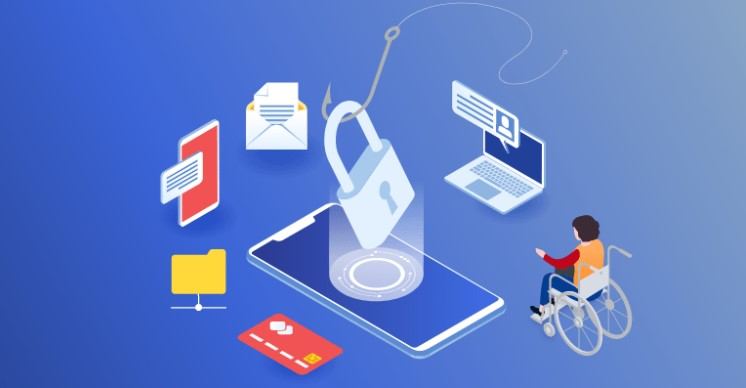By Nicodemus Nyakundi
How cyber-safe are people with disabilities? This is a question that few ask, but only a very few people are willing to answer. In some contexts, the term “safety” is said to be relative. Yet you and I know very well that it is a basic need when it comes to cybersecurity.
Internet accessibility is drawing near to basic human needs. So, should internet connection and its security.
During the Gender Internet Governance Exchange (GIGX) Workshop, one participant wanted to know why banks cannot install Automated Teller Machines (ATMs) at lower levels for ease of access by PWDs using their feet rather than their hands.
The above question may sound like a non-cybersecurity issue until the person requests help from a passerby. With such help, you must trust the “stranger” with your PINs, money, and other transaction information. As alarming as it may sound, that is also what people with short stature, the blind, and dyslexics go through in their daily lives while trying to access public facilities and websites.
The same case applies to cybercafes. Usually, when the cyber attendant notices that you have difficulty accessing a computer or a website, he will offer to help. It is a human instinct. Sometimes it is pure altruism or a disguise—a wolf in sheep’s clothing. But, again, what choices do people with disabilities have?
Someone may refer to the above cases as physical barriers. But those are not the only cases.
Consider the “I’m not a robot reCAPTCHA” features; an image without Alt Text or any description will demand that you “Identify traffic lights” or calculate the answer to a sum before proceeding to the website.
Some cyber security experts also advise you to clear cookies and delete your browsing history when browsing the internet. But how accessible are these suggestions? Would you still trust your aide to do that for you?
As a result, KICTANet is on a mission to promote an enabling ICT environment and is always seeking and calling for a conversation around these issues; walk-the-talk engagements on online safety for PWDs.
For, it is yearning and longing for ICT independence and fully accessible websites to all. A universal, cordial, stark, and secure cyberspace.
Be safe online, protect your privacy, and always remember “you are the weakest link in online security.
Nicodemus Nyakundi is an ICT Access and Equality Fellow for PwDs at KICTANet. He has a background in Information Technology.
![]()




